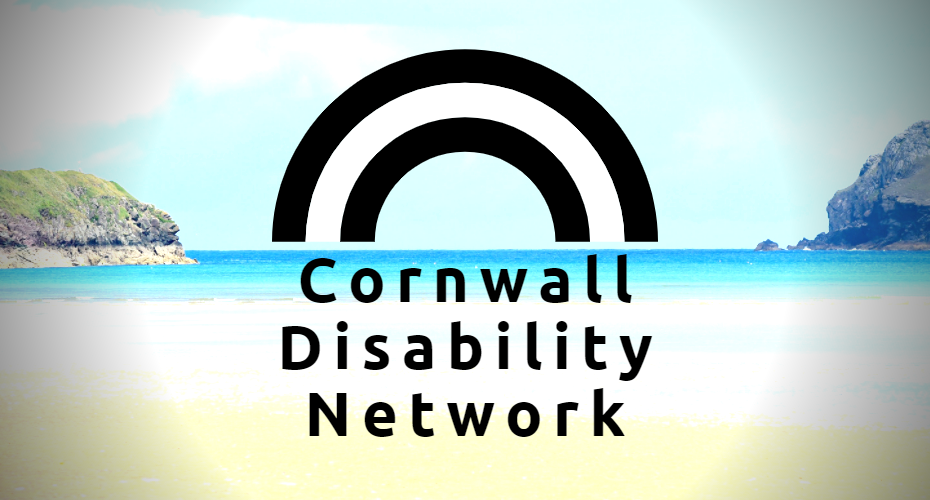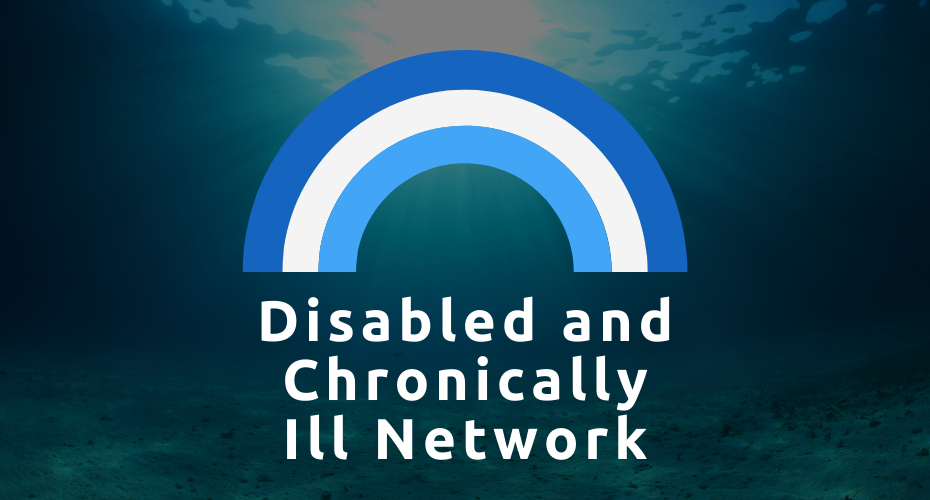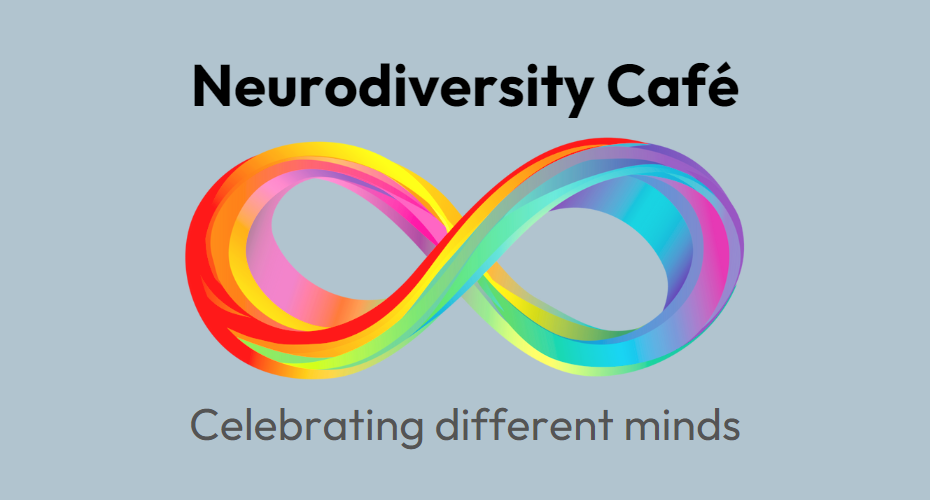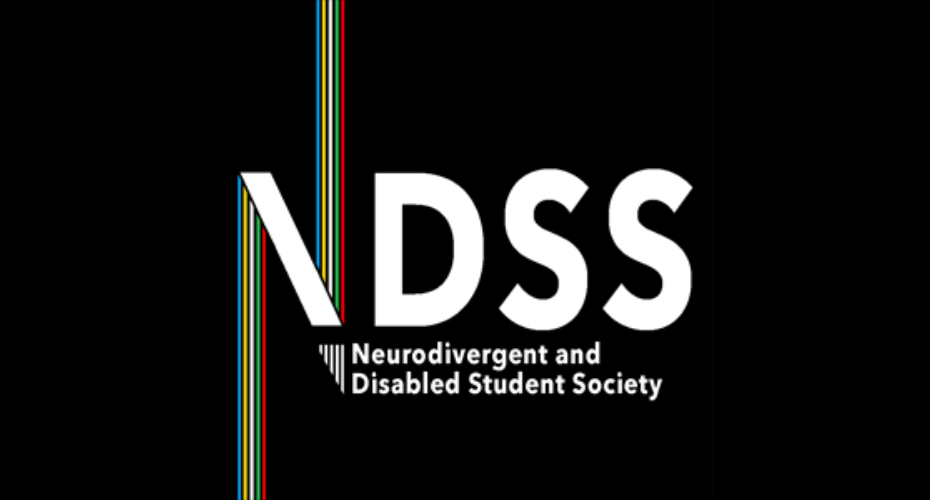Neurodiversity Celebration Week 2023
2023
2023
The University of Exeter is celebrating neurodiversity!
About neurodiversity
Neurodiversity denotes a natural variation in cognitive functioning and includes many non-dominant neurotypes such as autism, ADHD/ADD, Dyslexia, OCD, and Dyspraxia. Positive neurodiversity perspectives value and cherish such variation in cognitive functioning, and do not see it as a marker of negative difference.
Some definitions
Neurodivergence: brains that function and experience the world in ways different to the dominant, ‘neurotypical’, brain
Neurotypicality: the dominant neurotype – previously considered to be the ‘standard’ brain
Neurominority: a group that shares the same divergence
Neurodiverse or Neurodivergent? Neurodiverse or Neurodivergent? It’s more than just grammar – DART (ed.ac.uk)
Find out more about the history of Neurodiversity Celebration Week (NCW): Neurodiversity Celebration Week (neurodiversityweek.com)
For full details of events, resources and support being promoted for Neurodiversity Celebration Week, please click on the tabs below
Events taking place during the week
UPDATE: Recordings available!
Click on the event titles below to access event recordings
Dr Edward Mills: “The autistic Middle Ages? Neurodivergence and the medieval world”
Jorik Mol: Conversion Therapy and Neurodiversity: Where's the Line?
Student panel event on the experience of neurodivergent students in Higher Education
Monday 13 March, 12-1pm (online)
Neurodivergent students from the University of Exeter will join in a panel-like discussion to discuss their own experience of Higher Education and how existing barriers and systemic biases may affect engagement, well-being and access.
Register for tickets here: Eventbrite link
Let’s Talk About: Neurodiversity in Educational and Clinical Settings
(Please note that this event is open to members of the University of Exeter HLS faculty only)
Tuesday 14 March, 12-1pm (online)
In the 13th session of the Let’s Talk About Series, Dr Rachael Major will give a presentation followed by a discussion on the topic of neurodiversity, aimed at raising awareness and recognition of the challenges but also the strengths associated with neurodiversity. For more information, please contact Dr Musarrat Maisha Reza m.reza@exeter.ac.uk
The session will include a chance to discuss how to support neurodivergent students both in theory and practice settings, and the option to ask questions anonymously. As always, the sessions are a learning space where we try and meet one another with respect, assume good faith in our questions, and learn together. Dr Rachael Major (she/her) is Registered Nurse and a Senior Lecturer at the Institute of Health and Social Care Studies where she is the programme lead for Post graduate Programmes and Academic Lead and the Equality, Diversity, and Inclusion Lead. The latter role includes supporting students at all levels who are neurodivergent through screening, study skills and reasonable adjustments. Rachael chaired the Royal College of Nursing steering group to develop guidance and resources about neurodiversity for employers, staff, students and managers. Rachael’s doctoral research investigated the lived experiences of dyslexic nurses and subsequently she has widened her research to include ADHD, autism, dyspraxia, and dyscalculia.
To join this Microsoft Teams meeting, use meeting link:
Click here to join the meeting
Meeting ID: 393 660 330 784
Passcode: UsDK8v
Keynote presentation: Dr Damian Milton - 'Neurodiversity, Normalisation and Acceptance'
Wednesday 15 March, 12.30-1.30 (online)
Dr Damian Milton, a Senior Lecturer at the University of Kent, will discuss the history of two opposing narratives, that of 'neurodiversity' and of 'normalisation'. It will be shown how many practices and support strategies used today are framed within a historical framework of the latter and considers what such practices could look like when informed by the former.
Register for tickets here: Eventbrite link
Neurodiversity Research Showcase
Wednesday 15 March, 1.30-3.00 (online)
Find out more about some of the research on neurodiversity being undertaken across the university. Research to be presented includes a study challenging stereotypes on friendships in children with language disorders, a pilot of software designed to facilitate personalised learning, and a participatory study on autistic, trans students finding belonging in higher education.
Researchers:
Dr. Lenka Janik Blaskova from the University of Exeter will present their work on friendship interactions in children with language disorders
Dr. Julie Pepper from the University of Exeter will present their work on the"Cognisant of Cognassist" project
Rachel Griffiths from the University of Exeter will present their work on Autistic, trans* belonging in higher education
Register for tickets here: Eventbrite link
Dr Edward Mills: “The autistic Middle Ages? Neurodivergence and the medieval world”
Thursday 16 March, 5.30-6.30pm (online & Forum, Seminar Rm 5)
Join Dr Edward Mills, autistic lecturer in Medieval Studies, for a talk about medieval figures such as the Arthurian knight Percival, and the connections between ‘modern’ ideas of neurodivergence and the medieval world.
The terms ‘neurodivergence’ and ‘Middle Ages’ certainly don’t appear together on many bingo cards. Even talking about ‘medieval autism’ or ‘premodern ADHD’ is inherently anachronistic, and runs the risk of making assumptions about the past – and the people who inhabited it – that misrepresent and distort history. Why, then, have historians presented assessments of figures such as Hildegard of Bingen, or the Arthurian knight Percival, as ‘autistic’? What’s the point of making comparisons between the medieval concept of tristitia and ADHD? This talk – by an autistic lecturer in Medieval Studies – will offer answers to some of these questions, showcasing how (and, importantly, why) a topic that is seemingly so disconnected from ‘modern’ ideas of neurodivergence has come to draw so heavily on neurodivergence. No knowledge of medieval studies (or neurodivergence) is required.
Register for tickets here: Eventbrite link
Conversion Therapy and Neurodiversity: Where's the Line?
Friday 17 March, 1-3pm (online)
Join Jorik Mol for a talk about conversion therapy and the intersections of gender, sexuality, ethnicity and disability and how the lines that separate marginalised communities have greater negative consequences for all.
Conversion therapy. It's still not banned in the UK, despite a ban being announced as part of Theresa May's agenda around the 2017 election. Still, no such ban is in effect. Despite several attempts at stripping or even killing the ban, the government now assures us that this new draft ban will "protect all LGBT" people. Will they? We'll have to see. One group, though, will not be protected; neurodivergent people. Despite the vast majority of our community being LGBTQIA+, we continue to face conversion therapy when we interact with any services purportedly set up to support us. How can we challenge this? Conversion Therapy and Neurodiversity: Where's the Line? talk will unpack the limitations of legislation, the intersections of gender, sexuality, ethnicity and disability and how the lines that separate marginalised communities have greater negative consequences for all.
Register for tickets here: Eventbrite link
Find out more about the launch of our new Neurodiversity Cafe
Following the success of last year’s Neurodiversity Celebration Week events, we are proud to announce the inception of a new network for neurodivergent staff and PGR students. The Neurodiversity Café is a social group that is open to any staff member or PGR student who identifies as neurodivergent – we use Nick Walker’s definition of neurodivergence (NEURODIVERSITY: SOME BASIC TERMS & DEFINITIONS • NEUROQUEER).
The Café’s aims to create a neurodivergent-led, confidential and supportive space to meet regularly to talk about things that matter to us. We will also set up a private Teams channel to have a space for informal chat.
We will launch the Neurodiversity Café on Monday 13th March in the Neil Cross Room, 12.30-1.30pm as part of Neurodiversity Celebration Week 2023. Our theme for this meeting will be ‘What is it like to come out as neurodivergent?’
To receive information about the Neurodiversity Café and register for the launch event, please fill in this Microsoft Form.
Information about "All Kinds of Minds" Key Stage 2 session
Every neurodivergent person has a unique pattern of strengths and challenges. Many neurodivergent primary school pupils in Devon’s rural communities do not have any opportunity to meet each other and do not have role models to learn from. We want to build self-esteem and confidence to make sure neurodivergent people can flourish.
Watch a free short online teaching resource on climate change and sustainability designed for Key Stage 2 pupils recorded by our neurodivergent geographers. Learn from people who see the world in different ways. Listen to how their neurodivergent brains and passions have shaped their work.
REMINDER: The deadline for submitting your exhibition entries is 4pm on Friday 31st March! Details for how to submit your entry are on the YouTube video.
You can access the exhibition entries here from Saturday 15th April
Other events on neurodiversity coming up
The Neurodiversity Celebration Week organisation
Find a packed schedule of events run by the Neurodiversity Celebration Week organisation here: 2023 Events Schedule | Neurodiversity Celebration Week (neurodiversityweek.com)
'Discover University' event
As part of the University of Exeter's Discover University Student Experience panel series there is a student panel event where prospective students/offer holders can hear from students who identify as neurodiverse about their experiences studying at university. This could include students with ASD, ADHD or specific learning difficulties. This is an open access event.
No two University experiences are the same, so in our Student Experience series we bring together students with common identities, experiences or challenges to provide first-hand insight and advice for people either considering or planning for University study. The session will include a student panel, a Q+A, and a short presentation about relevant student services available at the University of Exeter.
When: 23 March, 6pm-7pm
Where: Online
To book and for more information: Book
Neurodivergent colleague profiles
For Neurodiversity Celebration Week 2023, some neurodivergent colleagues have submitted profiles about them, their barriers and how being neurodivergent has shaped their working and personal careers.
Please click here to read the profiles
Full list of resources on neurodiversity
YouTube recording on neurodiversity in the workplace
Watch a recording of Director of Education for Degree Apprenticeships Sarah Tudor's recent talk for CMI Regional Voice (South West) on "Neurodiversity and the Workplace: Embracing the strengths of individuals": YouTube
Podcast
Hear University of Exeter's Kelly Preece (R, D and the In-betweens) talking to Dr. Jane May Morrison and Dr. Edward Mills about being a neurodivergent PGR in honour of Neurodiversity Celebration Week! Being a neurodivergent PGR (podbean.com)
Learn more about neurodiversity
Please explore our neurodiversity webpage full of information, resources and support available, for both neurodivergent colleagues and anyone who would like to learn more about neurodiversity. The webpage has been created by Colleague Wellbeing with support from neurodivergent individuals and field experts across the University of Exeter.
Read stories shared by your colleagues about their experience of neurodiversity here.
Reading recommendations
The Library has produced a Neurodiversity Reading list
Find comics about living with ADHD: adhd-alien.com – Comics about the daily struggle with ADHD
Neuroqueer Heresies, By Nick Walker - Nick Walker is a key figure in discussing the intersection of queerness and neurodivergence and this book is a collection of her short essays on the subject, developing an empowered, very broad model for neurodiversity advocacy and community
'Welcome to the Autistic Community' by Lar Berry and The Autistic Self Advocacy Network
‘We're Not Broken’ by Eric Garcia
‘All the Weight of Our Dreams’ by Lydia XZ Brown et al
Neurotribes: The legacy of Autism and how to think smarter about people who think differently' by Steve Silberman
Blogs and video recommendations
Read a blog by University of Exeter's Kelly Preece: Supervising Neurodiverse PGRs - The Doctoral College Blog (exeter.ac.uk)
Find a list of blogs by Actually Autistic bloggers here: Actually Autistic Blogs List – A list of blogs by Actually Autistic bloggers (wordpress.com)
Find YouTube videos about ADHD: How to ADHD - YouTube
Woodshed Theory - YouTube channel about living as a late-diagnosed autistic woman. Thoughts on neurodiversity and whatever else interests her
Support available for neurodivergent staff and students
University of Exeter staff support
Information about support available from our Occupational Health team can be found here.
Consider joining our new Neurodiversity Cafe for staff and post-graduate researchers. Find out more information under the 'Neurodiversity Cafe' tab.
University of Exeter student support (Streatham and St. Luke's)
Information about disability support available from our Wellbeing and AccessAbility teams can be found here.
Information about the full range of wellbeing support available at University of Exeter support can be found here.
University of Exeter student support (Cornwall)
The Accessibility team supports students with disabilities, learning differences and health conditions to apply for DSA (Disabled Students' Allowance) and reasonable adjustments.
Not eligible for DSA? Check out these free productivity tools.
The Support and Wellbeing pages have resources and advice to help with your mental health.
If you think you might have autism or specific learning differences (such as dyslexia or ADHD), email inclusive@fxplus.ac.uk to access free online screening. Or visit the SpLD pages for more information.
NHS support
Information about Devon Partnership Trust's services (including neurodiversity services) can be found here.
Information about Cornwall Partnerships Trust's services (including autism assessment services) can be found here.

A message from Professor Neil Gow, Deputy Vice Chancellor (Research and Impact) and Chair of the Disability Equality Group on Neurodiversity Celebration Week 2023
“I’m proud to be part of a university that values each and every one of our staff and commits itself to ways of working in ways that enables everyone to flourish by making a wide range of unique contributions. For example, we embrace neurodiversity in all of its forms and welcome and celebrate the work and contributions of those staff members and students who have a wide range of neurodiversities. Indeed, neurodivergent people include some of the most celebrated, gifted and talented individuals in historical and contemporary life – their neurodiversity often heightening special insight, capabilities, analytical, musical and spatial skills. What makes us different from each other adds to the quality and richness of all of our lives and activities. We are also learning, and wish to continue to improve, the way we work and organise ourselves to ensure that our practices, mechanisms and governance structures enable everyone to enjoy being part of a nurturing university that gets the most out of each of us by celebrating and respecting our differences. I hope you will take pause this week, when we formally celebrate neurodiversity, to remember and applaud the differences in us all, and which makes the University of Exeter a great place to be.”
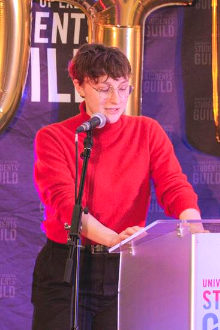
A message from Lily Margaroli, Students' Guild President
"Ensuring that our University is a place that students and staff who are neurodivergent can flourish, thrive and feel a sense of belonging is extremely important to the Students’ Guild. Celebrating and harnessing the unique gifts and talents of neurodiversity is something that we can be proud of as an institution. The differences in the way we think about the world, understand problems around us, and reach solutions is part of the rich tapestry of life, without these differences the world, and our university, would be far less vibrant. Being neurodivergent comes with it’s challenges, it can feel like the world operates in a way that is not fit for us, and that everyone seems to understand or be able to do things easily that we, as neurodivergent people, cannot do or cannot understand. However, coming to Exeter has allowed me to flourish in a way that I had not experienced before, and I hope that as an institution we can offer that experience to more and more neurodivergent people who enter into our community. What neurodivergent people offer the world is a different way of thinking and an often refreshing outlook on our surroundings, I hope that this week we can all share in our celebration and understanding of neurodiversity (and if you are neurodivergent yourself, I hope this week offers a chance for you to celebrate yourself!)."


